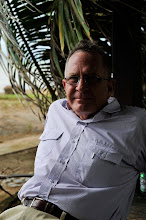Timid, hurt and standing. Predictably, the garment and tourism sector in Cambodia has taken the biggest pummeling. As the first-world hunkers down for tough sledding ahead, orders for garment production here has contracted between 20 and 30 percent. The only savings grace for this sector is the fact that much of the garment product Cambodia creates is for the 'Old Navy' category retailer. While garment retailers like Old Navy may take a spanking along with everyone else, upper middle-class folks, under the current circumstances, will literally need to dress down and will likely become a new audience for the likes of Old Navy.
From a Cambodian tourism perspective, things are severe and complicated. Bangkok is a key gateway to Cambodia. Up until earlier this week, the Bangkok International airport was taken hostage by peaceful Thai, anti-government protesters. What a mess. Folks from half-way around the world were stuck-in or stuck-out of the region. Things are now being sorted out, but a real (and likely lasting blow) to both Cambodia and Thailand.
While garment manufacturing and tourism is all important here, what this country is really all about is rice production. Like all commodities, rice prices will fluctuate. In the long run, rice is number three in fundamental human necessities in much of the world. Only oxygen and water rate higher.
Of the approximately 14-million souls in this Kingdom, 80% are subsistence farmers. Their methods are thousands of years old. These farmers hydrology skills are nearly non-existent.
In my estimation, there are literally millions of acres like this in Cambodia. Most of it fallow. Some time ago I hounded my friends here in Cambodia that manage the ethical banks to help farmers establish cooperatives. The banks said, 'good idea Jeff, but the farmers do not trust one another enough to create cooperatives'.
If this is true, many of these little farmers are about to become dead meat. Harvesting in the thousands of acres with machines is just around the corner.
As we all know, the Middle East is really growing. Sandy, hot and and a hard place to grow healthy green stuff.
In the very near future, I see many several huge swaths of land - maybe tens of thousands of acres each - being awarded to sophisticated middle-eastern farmers.
Banking here is solid. Interestingly, by many accounts, Cambodia is one of the most corrupt countries in the world. On the other hand, Cambodia banking is currently much more stable than the United States or Europe.
Most construction projects underway here will finish. Material costs to developers have returned to original cost expectations. Still, me included, new construction guys are nervous and huddling with banks to decide how to move forward prudently. In my instance, banks are encouraging me to focus more on office rather than residential structures.
I agree with them. I need to adapt better.
Our land holdings here are in premium locations. Along with the rest of the world, we are in a slump. For my little firm, the good news is, like much of the world, ultra-premium property holds it's value. In these troublesome times, we are without debt and in good stead...and building.
Thursday, December 4, 2008
Subscribe to:
Post Comments (Atom)


No comments:
Post a Comment